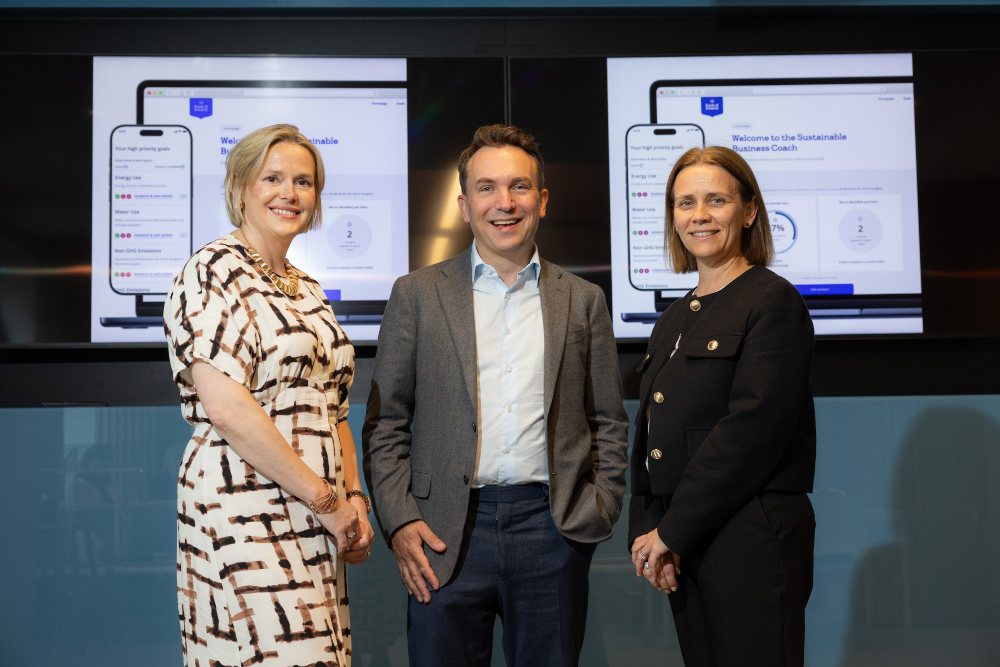Sustainable travel options for colleagues are not only good for the environment, they make good business sense too, writes Patrizia Niehaus.
As the leaves fall and the crisp morning air brushes against our cheeks, there is no mistaking it: October is here. By this stage, the schools are back in action, colleges and universities are open, and those long-awaited summer holidays are well and truly behind us.
If you listen carefully, you can almost hear the collective groan of commuters across the country, stranded in bumper-to-bumper traffic, gritting their teeth and glancing at their watches as precious minutes slip away. Rush hour has returned and with it comes more congestion, more frustration and more emissions.
“Without doubt, it is within a business’ best interest to incorporate sustainable commuting options into their ESG strategy”
In fact, the daily commute is one of the biggest contributors to traffic congestion. With over 3 million cars on our roads, and 59% of people driving to work every day, it’s no wonder the Environmental Protection Agency found that transport emissions represent the greatest overall increase in GHG emissions of any sector – rising by 129% in the last 30 years.
The reality is everybody has a role to play in reducing Ireland’s emissions and often, it’s the small steps that can lead to meaningful change. However, when considering the commute, it could be argued that businesses have a bigger influence, or more accurately a bigger opportunity, to make a real impact. After all, what is one of the main reasons the daily commute exists? People have to get to work.
The toll of travel
This realisation has not gone unnoticed with companies across the globe now facing increased pressure to disclose their ESG data. And while reporting platforms are incredibly helpful in streamlining data and ensuring compliance, they cannot create metrics out of thin air.
Businesses have a responsibility to measure and manage their emissions, including those caused by the daily commute of their employees. These emissions fall under the notoriously difficult to track and address, scope three category.
As well as higher levels of pollution, according to our own research here at KINTO Join, commuting can also have a negative impact on people’s mental health.
In fact, 45% of Irish people find their daily commute stressful. It comes as no surprise that the top frustration among commuters in Ireland is traffic congestion. In turn, those travelling by car could find a once 20-minute journey taking over an hour and a once half-empty carpark jammed with queues.
Without question, the daily commute inflicts some form of misery on employees’ lives – whether it be environmentally, physically or mentally.
Unfortunately, for many, there is no other choice than to jump in the car to get to where they need to go. However, companies do have a choice when it comes to enabling sustainable commuting for employees.
Go on green!
So, what happens if businesses decide to shift gears and embrace sustainable commuting options? Much like the challenges of commuting, the advantages are endless.
By incentivising public transport, implementing low-cost shuttle options and/or utilising carpooling apps, businesses have the ability to help reduce emissions – in some cases, saving hundreds of kilogrammes of CO2. They also have the power to enhance the commuting experience for employees.
This not only benefits people and the environment, but also the business. In general, happier staff are more productive. In turn, there is likely to be less turnover and higher retention. In fact, almost two-thirds of commuters we surveyed acknowledged they are more likely to stay in a job with more favourable commuting options.
These are all additional benefits that don’t even consider the core advantage – playing a part in reducing transport emissions, helping Ireland to meet its mandated EU climate targets and ultimately protecting our planet against climate change for generations to come.
Without doubt, it is within a business’ best interest to incorporate sustainable commuting options into their ESG strategy. It is no longer simply an environmental choice; it’s a strategic investment in both the wellbeing of a company’s workforce and the future of the organisation.
-
Bank of Ireland is welcoming new customers every day – funding investments, working capital and expansions across multiple sectors. To learn more, click here
-
For support in challenging times, click here
-
Listen to the ThinkBusiness Podcast for business insights and inspiration. All episodes are here. You can also listen to the Podcast on:
-
Spotify
-
SoundCloud
-
Apple





